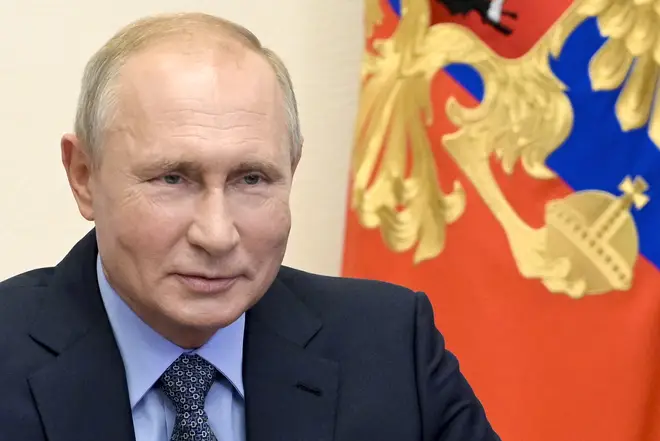
Paul Brand 7am - 10am
22 July 2020, 06:32

Boris Johnson is set to give the intelligence and security services new powers to stop foreign interference in Britain after a report said that the Government “took its eye off the ball” over Russia.
The long-awaited 'Russia Report' by the cross-party Intelligence and Security Committee was published yesterday and accused ministers of failing to protect the EU referendum in 2016 against outside influences.
The report was critical of the intelligence agencies and accused them of adopting an "extreme caution" approach and said the Government had “directly avoided” an investigation into allegations that agents of Putin meddled in the Brexit vote.
It is now understood the Prime Minster will increase counter-espionage laws in the wake of the bombshell report.
The move comes as opposition parties are set to go on the offensive on Parliament's final sitting day on Wednesday before the summer recess.
On Wednesday the Commissioner of the Met Police told LBC she believes the public should be concerned about the threat from Russia in the wake of the events in Salisbury and the murder of Russian dissident Alexander Litvinenko.
Commissioner Cressida Dick says "I do think people should be concerned about the threat from Russia. In recent years we've seen events in Salisbury, the murder of Litvinenko.." @LBC
— Rachael Venables (@rachaelvenables) July 22, 2020
Labour has accused the Government of failing in its response to the security threat posed to UK democracy by Russia, after the long-delayed ISC report insisted London was too slow to recognise Moscow's menace to British democratic processes.
Speaking ahead of an urgent question in Parliament on Wednesday, Labour's shadow home secretary Nick Thomas-Symonds said that "on every level, the Government's response does not appear to be equal to the threat".

Dominic Raab rejects idea that UK avoided investigating Russia
Mr Johnson is likely to face a grilling on the situation in the last Prime Minister's Questions of the parliamentary session.
Mr Thomas-Symonds said: "The Intelligence and Security Committee's report on Russia exposes deep systemic failings in Government approach to security.
"This report outlines the scale of the shortcomings of the Government's response to maintaining our national security in the face of what is clearly a growing and significant threat from Russia.
"The report outlines a litany of hostile state activity, from cyber warfare, interfering in democratic processes, acts of violence on UK soil and illicit finance.
"On every level the Government's response does not appear to be equal to the threat.
"While on key issues it is clear that there is no overall strategic response to this challenge - little wonder the Government have been so keen to delay the publication.
"The UK has world-leading security services, yet this report makes clear they have not received the strategic support, the legislative tools or the resources necessary to defend our interests.
"The Government need to urgently outline how they will address these systemic failings."

Former GCHQ Head Sir Francis Richards on Russia Report
A "register of foreign agents" has been one suggestion such as the ones in use in the USA and Australia as part of a stronger move against foreign interference in internal affairs.
Under the American system, people who work for foreign governments and officials have to register with US Justice Department and file reports about their activities.
In an explosive commentary, the ISC said the Government was slow to recognise the potential threat posed by Russia to British democratic processes and did not properly consider whether Moscow could interfere in the Brexit referendum until after the event.
The ISC report concluded the UK only belatedly realised the threat to political processes despite alarm bells ringing over the 2014 Scottish referendum.
The intelligence agencies and Government departments treated the issue as a "hot potato", with nobody effectively tackling the problem, the committee said.
The Government said there was "no evidence" of successful Russian interference in the Brexit vote but the committee - which oversees the work of Britain's spies - suggested there was no proper investigation.
MI5 provided just "six lines of text" when asked whether there was secret intelligence on the issue of potential Russian meddling in the referendum.
But the Government - led by a prominent Brexiteer in Mr Johnson - has rejected the committee's call for a full analysis of whether Vladimir Putin's government did attempt to influence the result of the 2016 vote.
The report was drafted by the ISC's members in the last parliament. Its publication was delayed by Mr Johnson's decision to call a general election and by the slow process of appointing a successor committee.